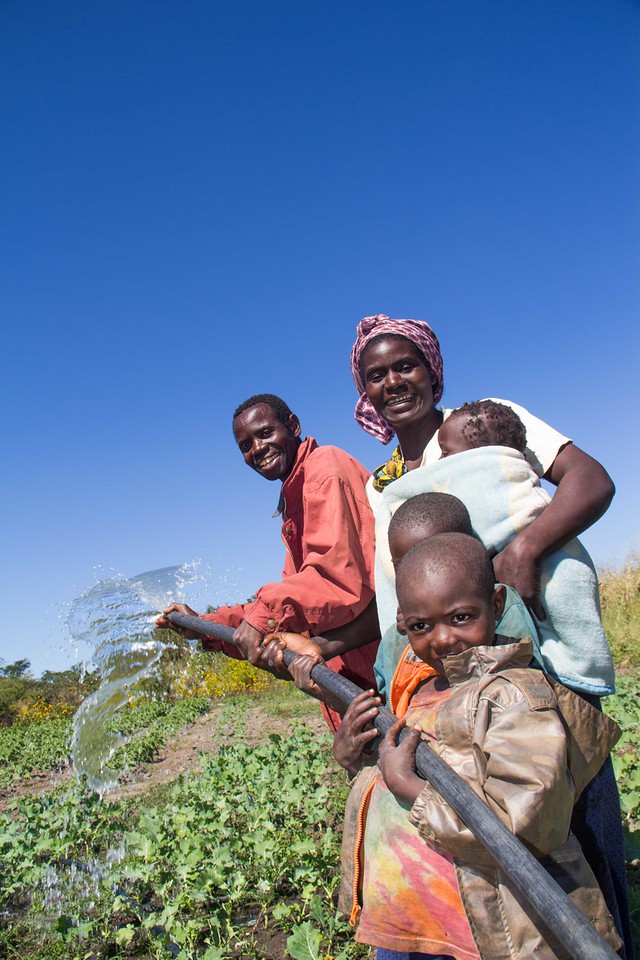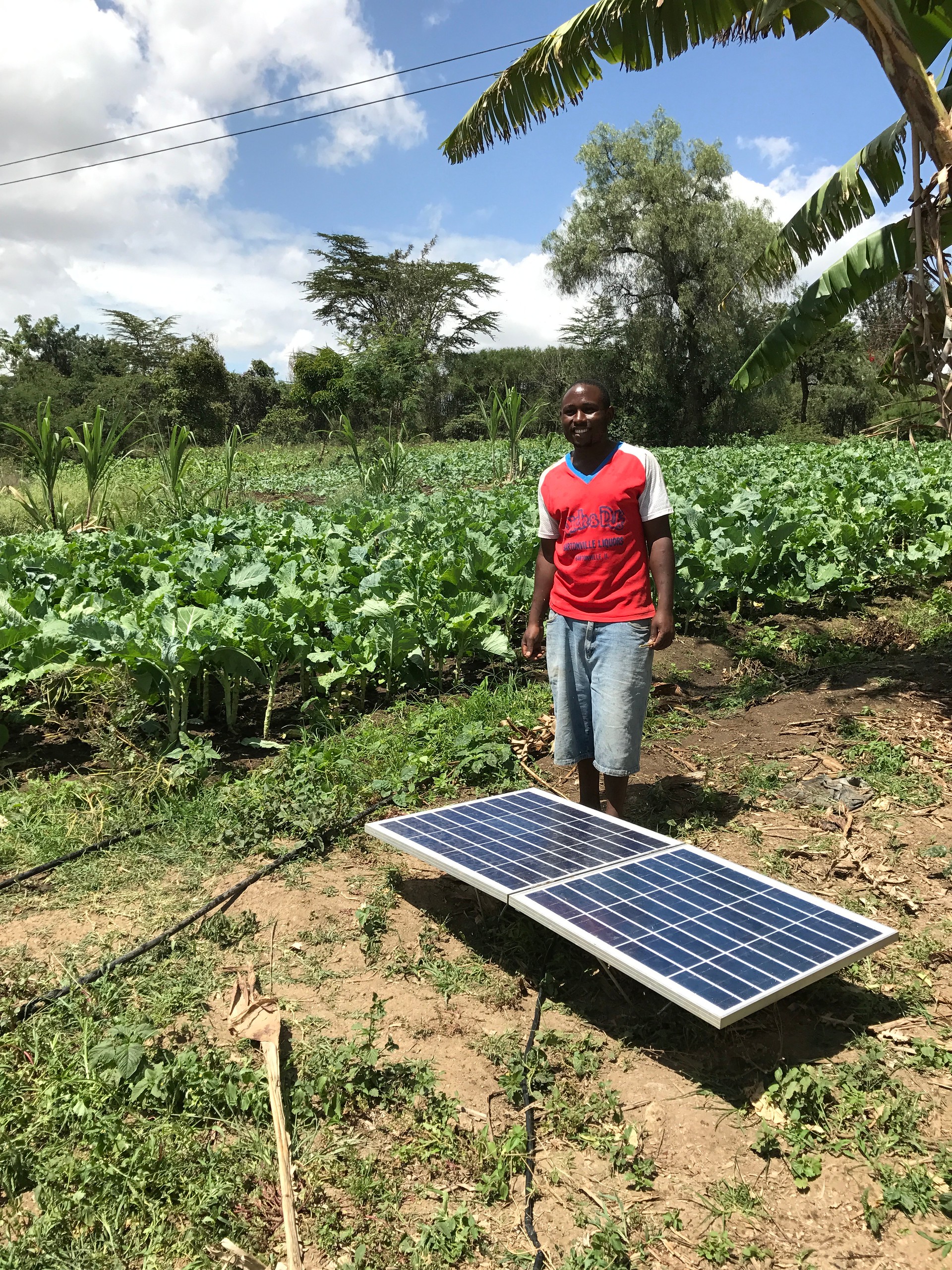Irrigation: that’s the key to lifting sub-Saharan Africa out of poverty, according to Martin Fisher. He traveled to the region on a Fulbright scholarship in 1985, and shortly after he co-founded Kickstart International to design and mass market simple yet transformative tools that open up business opportunities for poor smallholder farmers.
“I went for 10 months, and I never came back,” said Martin. “One of the key lessons that took me a while to learn was that a poor person’s number one need is a way to make more money.” With his partner Nick Moon, Martin created Kickstart to help families lift themselves out of poverty—quickly and sustainably—by enabling farmers to sharply increase their income with the help of irrigation technology and efficient agricultural practices.
Nearly all of their fields are entirely rain-fed, devoted to low-value crops that produce only one or two harvests a year. The yield sells only when the market is saturated, keeping prices low. In a drought, crops fail and desperate periods of hunger follow.
Only four percent of land in sub-Saharan Africa is irrigated. There is almost no history of irrigation in the region—electricity and fuel are scarce. In 1999, Kickstart introduced its signature product innovation responding to these conditions: the “Moneymaker” a simple, durable human-powered pump that can irrigate up to two acres with four hours of pumping.
With irrigation comes higher yields, higher prices, and higher value crops produced. “Farmers also invest in improved seeds and fertilizer for that critical time when the rains come,” said Martin.
A great product and a robust distribution network aren’t enough though, Martin learned. Kickstart had to tackle behavior change. “We’re selling to the world’s poorest and most risk-averse buyers,” said Martin. “This is a brand new, big ticket item that they’ve never seen before, and we’re asking them to change generations of farming practice. This is the most challenging marketing and sales job in the world. Even Coca-Cola took over 10 years and hundreds of millions of dollars before they came profitable in Africa, and they sell a sweet, addictive drink.”
Kickstart executes major promotional education campaigns, and its team goes door to door demonstrating how the pump can be a life changer. Kickstart began in Kenya in 1991 and branched out into Tanzania, Mali, and Zambia. By July 2015, Kickstart had sold 250,000 pumps, generating $170 annually in new profits and wages for farmers.
“Now, those are nice numbers but we need to massively scale up,” said Martin. “That took us 15 years, and it’s really not good enough.” Kickstart aims to help 1 million more people in sub-Saharan Africa pull themselves out of poverty by 2023. To get there, Kickstart has pivoted its pathway to scale from a direct sales model to leveraged partnerships with local NGOs, UN agencies, businesses, microfinance institutions, and governments.
Agriculture has to become an attractive option for young people, says Martin. “The youth are running away from the farms as quickly as you can imagine,” he said. “Their parents were failed farmers who couldn’t even make enough money to send them to school.” Kickstart is working on a package to target the youth demographic: a lower-cost pump, training, and inputs, all accessible with a single loan.
Martin, an engineer by training, is determined to design a high-quality, low-cost, next-generation solar pump. “These human-powered pumps have a place to play, but what everybody really loves is when you don’t have to be in the field, pumping,” he said. This pump will be easy to use and portable. It will pack flat into a backpack and will require no training, tools, or maintenance. It will even be available on a pay-as-you-go financing system powered by Angaza, the leading innovator in financial inclusion for off-grid customers. Martin expects the pump to be ready for distribution in January 2019.
The next challenge will be for Kickstart to build coalitions to leverage funding and form the partnerships that catalyze the entrepreneurial drive of smallholders and turn their fields into profitable businesses that generate food and income year-round.
“We’re learning a lot of lessons on how to do advocacy,” said Martin. “We’re really very much beginners. We need to advocate, communicate, and partner to catalyze systems change. What really needs to happen is a movement to irrigate Africa.”